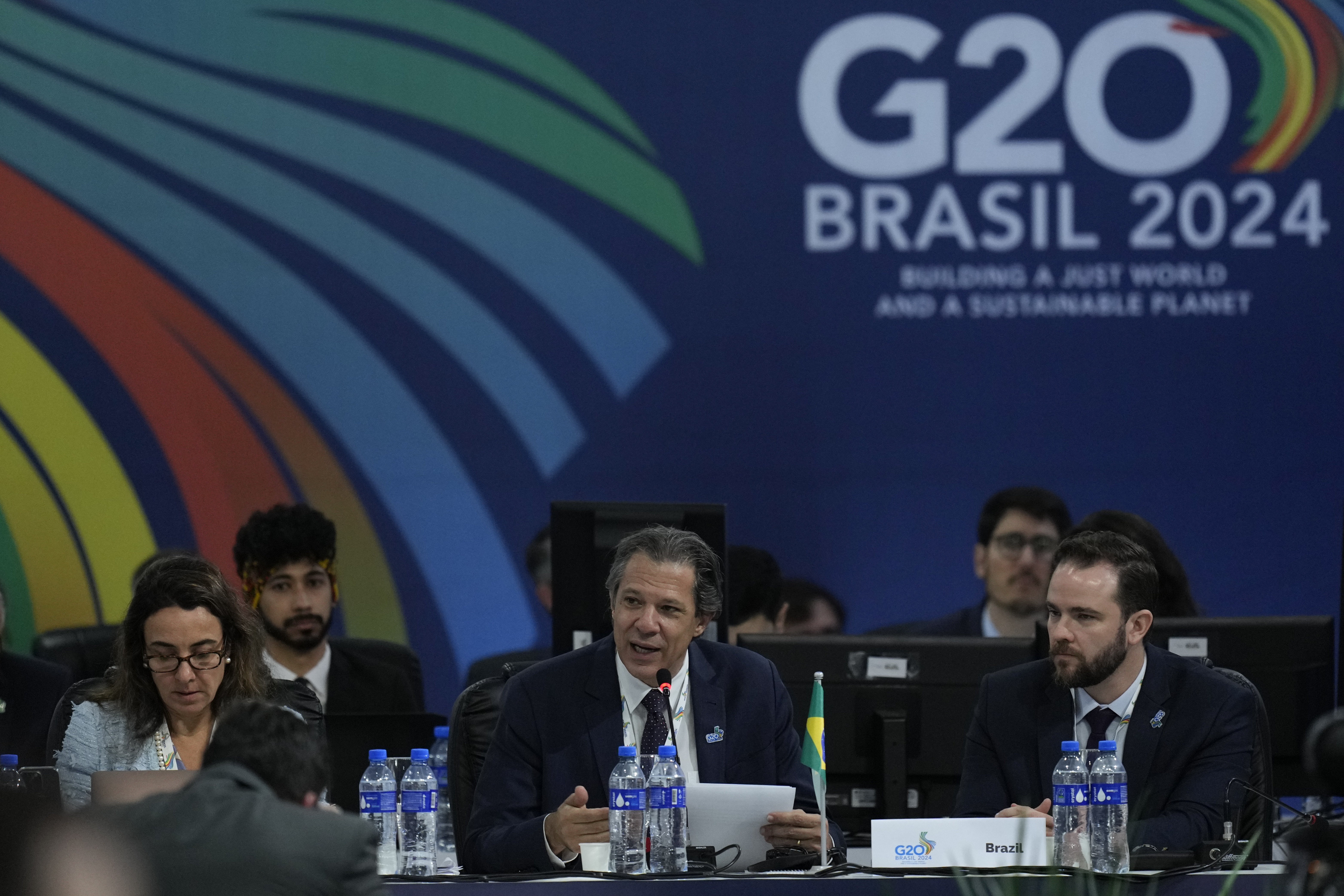
WASHINGTON - The International Monetary Fund, World Bank and current G20 president Brazil said on Wednesday there had been significant progress on global debt issues in recent months, citing new agreements on desired timelines and comparability of treatment.
IMF Managing Director Kristalina Georgieva, World Bank President Ajay Banga and Brazilian Finance Minister Fernando Haddad issued a joint statement after a ministerial-level meeting of the Global Sovereign Debt Roundtable on the sidelines of the spring meetings of the IMF and World Bank.
The joint statement outlined progress in some sovereign debt cases, including agreements reached by Zambia and Ghana, and advanced discussions in the cases of Sri Lanka and Suriname
The IMF and the World Bank convened the roundtable, which brings together debtor countries, creditors, international financial institutions and the private sector to jumpstart long-stalled debt restructuring processes and build greater understanding on ways to address challenges.
The joint statement outlined progress in some sovereign debt cases, including agreements reached by Zambia and Ghana, and advanced discussions in the cases of Sri Lanka and Suriname.
It said the GSDR had helped forge consensus on how processes could be improved in future cases, including on comparability of treatment and on timelines toward swifter and more predictable restructuring processes, while taking into account the specific circumstances of each case.
It said discussions among GSDR members underlined the need for enhanced clarity, coordination and transparency across creditor groups, and providing debtor countries with the metrics for how their private debts would be assessed.
Private creditors and the debtor country should also ensure that, before they finalize and announce an agreement in principle, the deal had been vetted by IMF staff on consistency with debt targets and program parameters, and with the official bilateral creditors on comparability of treatment, it said.
The report also cited progress on accelerating timelines for getting through the restructuring process, and to move from an IMF staff-level agreement to approval by the IMF board, but said timelines were still too long.
It said participants agreed to shorten the timeline to form an official creditor committee, a move that would also help communication and coordination with private creditors and accelerate their own restructuring processes.
They agreed to work toward program approval within 2-3 months of SLA, and said they would hold a workshop on comparability of treatment at the end of June.
They also agreed to further deepen coordination among stakeholders, including on ways to support early exchanges on debt sustainability assessments and debt relief parameters; work on the use of state-contingent debt instruments, and ways to address current liquidity concerns.


